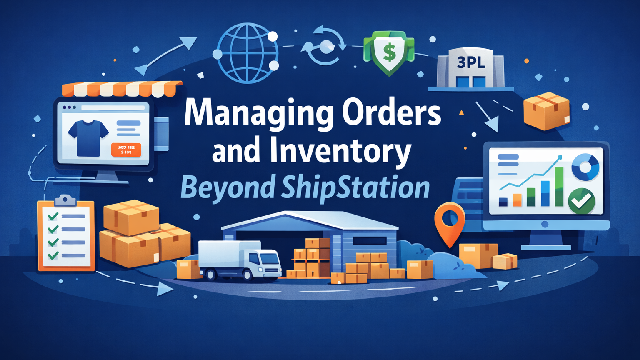Building Your Business: The Ins and Outs of Company Formation
Congratulations! You're ready to open a business. You have a great idea and the determination to see it through. But before you start selling your product or service, you need to think about some things first: How are you going to make money? What kind of legal entity should I form? Will I need funding to get started? How can I promote myself and my company so that people will want what we have to offer?
While this list may seem daunting at first glance, don't worry—we've got everything you need right here in one place. We'll walk through each step of starting up your new venture from A-Z so that there aren't any surprises down the road. We'll also include concrete examples and resources for every stage along the way so that you can get started on building your own successful business today!
The Legal Landscape
The legal landscape is the set of laws and regulations that govern your business. Thankfully, there are companies like Doola and many others are available to help facilitate such things. However, understanding the legal landscape is important for any entrepreneur who wants to succeed in their field, but it's especially critical when you're just starting out. Understanding the legal landscape is important for any entrepreneur who wants to succeed in their field, but it's especially critical when you're just starting out.
The first step toward understanding this complex ecosystem is learning about different types of businesses and how they're regulated under UK law. Once you've got a grasp on these fundamentals, it's time for some more advanced considerations: choosing a company structure (or "entity type") based on what kind of business entity will best suit your goals and needs.
Understanding how taxes work; preparing contracts with employees or contractors; complying with health-and-safety regulations; protecting intellectual property rights such as trademarks or patents; and ensuring compliance with regulations and standards. For instance, if you're operating in the Czech Republic, you would need to look into Company Registration in the Czech Republic to ensure you meet all legal requirements in that jurisdiction. The list of legal considerations can be extensive, but it's crucial for your business's success.
Crafting a Business Plan
A business plan is a document that helps you set goals, define your business, and explain how it will operate. It's an important tool for communicating with investors and lenders, as well as for keeping yourself on track with your company's development. A good plan will contain information about the market you're entering (and its competitors), how much money is needed to get off the ground, and why this amount makes sense given what your product or service offers in return.
It should also include projections of growth over time; if no one can see where they're going to take their business next month, let alone five years down the road, then there's little incentive for them to invest in yours now! Business plans vary depending on what kind of venture they're supporting; some may be more focused on management, while others are intended solely as sales documents; still, others might combine various aspects into one comprehensive report designed specifically around raising funding from investors, banks, etcetera.
The Importance of Location
Location is a key factor in the success of a business. In fact, it can be one of the most important factors in determining whether or not your company will thrive. Location affects everything from marketing and staffing decisions to how early you open in the morning, how late you stay open at night, and even what kind of food comes out of your kitchen (if there even is one).
You may think that location doesn't matter much when it comes to starting an online store, but think again! You're still going to need an office space where employees can come together every day (or part-time) and interact with each other face-to-face; otherwise, they'll never meet each other's needs properly. And if they don't get along well enough while working together remotely through email exchanges alone, then they probably won't work well together once those relationships become more personal too. Which means less productivity overall throughout all departments within any given business structure.
Moreover, the location you choose can also impact legal and regulatory matters. If you're planning to operate in the USA, for instance, you'll need to look into USA company registration and ensure you meet all the legal requirements in that specific jurisdiction. The choice of location can have a ripple effect on various aspects of your business, making it a crucial decision for long-term success.
Funding Your Vision
When you're ready to start or expand your business, one of the first things you need to do is find funding. There are many different types of financing available for businesses, including loans and grants. When seeking out financial support for your venture, it's important not only to know where to look but also how much money you need and how much time it will take before being able to pay back what has been borrowed from outside sources (if at all).
In addition, obtaining funding can be an arduous process that requires a lot of paperwork and persistence, especially if this is something new for both parties involved in providing funds or receiving them. The good news is that there are plenty of resources available online where entrepreneurs can get started finding out more about applying for loans through banks such as Wells Fargo Bank or Capital One Credit Card Services.
However, they may also want to consider working closely with an experienced attorney who knows his way around corporate law issues related specifically to startup companies. These types of businesses tend to suffer setbacks mainly because of their lack of knowledge surrounding legal matters affecting their survival rate within societies. Other financial difficulties can arise if you are not up to speed with tax requirements or fail to appreciate the need to set aside cash to cover what you owe each quarter. The simple step of estimating quarterly taxes in advance will set you up for financial stability as a business. In addition to traditional loans and grants, private lending offers an alternative funding route for entrepreneurs looking to secure capital quickly.
Branding and Marketing
While branding and marketing are often used interchangeably, they're actually two very different things. Branding is the visual representation of your company, which should be consistent across all platforms (website, social media accounts, and so on). Marketing focuses on getting new customers through sales and advertising campaigns.
To create an effective brand strategy that will work for your business long-term, it's important to understand how branding works from a psychological perspective. The reason why Coca-Cola's logo looks like it does has nothing to do with aesthetics; it was designed based on research into how people perceive images in their minds and associate them with certain emotions or ideas.
In fact, many companies spend millions studying how consumers respond to different colors and shapes before deciding what kind of logo would best represent their brand identity! This kind of research isn't cheap but ensures that customers will remember their products when shopping around for similar products later down the road, making it an investment worth making!
The Digital Dimension
As you establish your business, it's crucial to maintain a strong digital presence. The internet has revolutionized communication and information access, making an online presence essential for visibility. Social media offers a potent tool for small businesses, enabling direct customer engagement. Platforms like Facebook, Twitter, and LinkedIn are effective choices. Regular, non-spammy usage is key. Utilize these platforms for promoting special offers or seasonal contests.
Email marketing can rekindle customer interest, especially after economic downturns like the recession of 2008–2009. Reminding customers of your presence helps rebuild confidence and trust eroded by negative news reports from various media outlets.
Conclusion
In summary, embracing the digital realm through a robust online presence, strategic social media usage, and email marketing can propel your business forward. Now that you've read through this article, you have a better idea of what it takes to start your own business. You know the legal landscape, have crafted a business plan, and are ready to get funding or launch your product or service into the world.
We also discussed some important considerations in terms of location and branding, both essential elements of any successful enterprise! Now all that's left is for you to put these ideas into practice by doing research on potential partners or investors who might be interested in helping fund your dream project; once they're identified (and vetted), then all that remains is getting started!







